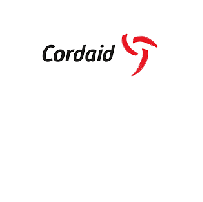Prior to the COVID-19 pandemic, Zimbabwe had made commendable progress in the provision of RMNCAH services at all levels of care. Findings from the Multiple Indicator Cluster Survey (MICS 2019) reflect successes of the decade-long investments into the RMNCAH program by the government and its partners. Zimbabwe recorded its first case of COVID-19 on March 20, 2020, and the measures introduced to contain the spread of the virus resulted in disruptions in healthcare provision, particularly of essential health services in relation to maternal and child health, sexual and reproductive health, and chronic conditions. The pandemic slowed down the delivery and utilization of essential RMNCAH services; compromised quality of care through health worker burnout; reduced or altogether stopped the implementation of selected life-saving and high impact health care interventions; increased the occurrence of cases of Sexual and Gender Based Violence (SGBV) during lockdown and reduced funding for RMNCAH programming as funds were reprogrammed to fight the pandemic. To mitigate the impact of COVID-19 and ensure access to essential health services for all, the Ministry of Health and Child Care (MOHCC) adopted alternative ways of delivering health services to people, including use of digital platforms and conducting integrated outreaches to bring services closer to people.
Zimbabwe received a grant to mitigate the Covid-19 pandemic from the World Bank and an additional financing stream to revitalize services negatively affected by the pandemic to the tune of 15 million USD, termed the essential health services grant. The Essential Health Services grant will enable the country to strengthen the health system’s capacity to increase access, quality, and equity of RMNCAH services. This grant will support the Government’s commitment to maintaining access and sustaining Essential Health Services. Maintaining EHS is a priority of the GOZ as outlined in the NHS 2021-2025 and its investment case and the CHS 2020-2025. The GOZ has further emphasized its commitment to delivering essential health services through a primary health care approach. Investments under the AF are expected to strengthen the health system’s capacity to maintain delivery of essential health services, ensuring institutional sustainability for continuity of RMNCAH service delivery.
This activity seeks to develop and document online training modules for emergency obstetric and newborn care training package, starting with four modules.
Cordaid therefore seeks to hire a consultant to develop online learning courses for the Emergency Obstetric and Newborn Care (EmONC) Training.
Under this objective, the Consultant videographer and Facilitators will support the Ministry of Health and Child Care, and Cordaid/ World Bank to build their investments in Health. Particularly, to improve quality of MNCH services by contextualizing existing EmONC curriculum into audio lectures with video skills demonstration sessions of the key lifesaving interventions for 25 selected district hospitals and rolling out to the rest of the health facilities in Zimbabwe and beyond. The EmONC lectures will target primarily facility health care workers to include district and provincial level staff (PCNs, midwives and GMOs). This recording is an effort to address the continuous brain drain by qualified and experienced EmONC trainers and trained staff and will form part of legacy of World Bank and Cordaid Zimbabwe continuous quality improvement for health processes. The Ministry of Health and Child Care hopes this will enable institutionalization of sustainable EmONC training.
Qualifications and Experience
Interested eligible Consultants may obtain further information and Terms of Reference from the following link: https://shorturl.at/xH0Yj or email Cordaid Zimbabwe Procurement on [email protected].
How to Apply
Proposals to be submitted to Cordaid Zimbabwe Procurement [email protected], cc [email protected]; [email protected]; on or before 27 December 2024 at 17:00hrs.

